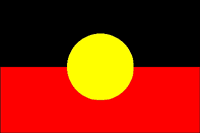Family and domestic violence can take many forms. It can also impact every member of the family, even if they are not the victim of violence. Witnesses of violent events may experience trauma, especially if the witness is a child and young person.
If you suspect a young person close to you is impacted by family violence, it can be hard to know what to do. Maybe you’re not sure what signs to look for, or who to tell. Or perhaps the young person has asked you not to tell anyone – which makes things very tricky indeed!
Family and domestic violence in any form is a challenging situation – and even more so when children are involved. However, there are practical steps you can take to be on the front-foot when it comes to supporting a child or young person who you suspect might be exposed to violence and abuse.
1. Arm yourself with knowledge
There is a lot of information and opinions out there about family and domestic violence. Unfortunately, not all of it is accurate. If you have young people in your life who could be at risk of family and domestic violence, it’s a good idea to have a basic understanding of what it is, what signs to look for, and what to do about it.
We suggest getting the facts from a reputable source, such as 1800 Respect or White Ribbon Australia.
If you are a mandated reporter, you may be required to complete formal training through your employer or professional body. However, there are also short courses available online that offer introductory training to anyone who wants to learn more about family and domestic violence.
2. Ask the questions – even if they’re hard
If you have suspicions that a young person is experiencing or witnessing family and domestic violence, don’t avoid asking. It’s always better to ask and be wrong, than not ask and be right!
How you have the conversation is going to depend on a range of factors, including the age and developmental needs of the young person, but general guidance includes:
- be mindful of safety and confidentiality
- try to choose a location for the conversation that is will be calm and private
- You can lead the conversation with what you’ve observed, rather than directly asking if violence has been taking place.
- Ask more broad questions about the young persons experiences, about types of behaviors they have observed as some young people may not connect the name Domestic Violence to their own experiences.
- be transparent – for example, disclose if you are a mandated reporter, and what steps you’ll need to take after the conversation
- be kind, Believe them and give them your full attention during the conversation.
Even if it seems unlikely or out-of-character for your young person, it’s always a good idea to be prepared for different outcomes when asking the young person. Have a plan in mind for what to do if the young person is triggered.
3. Know where to go for support
You don’t have to bear sole responsibility for the safety and wellbeing of the young person. This is particularly true if they disclose that violence has been occurring at home – don’t do it alone if you’re in any doubt about what to do.
Our Domestic and Family Violence Support services help couples and families who have experienced or witnessed violence or abuse. We also provide specialist support for children and young people, including counselling.
There are services that specialise in family and domestic violence including the Domestic Violence Crisis Service and Legal Aid.
If you believe the young person is in immediate crisis or danger, or if you feel endangered yourself, please call 000 or 1800 RESPECT (1800 7377 328).





